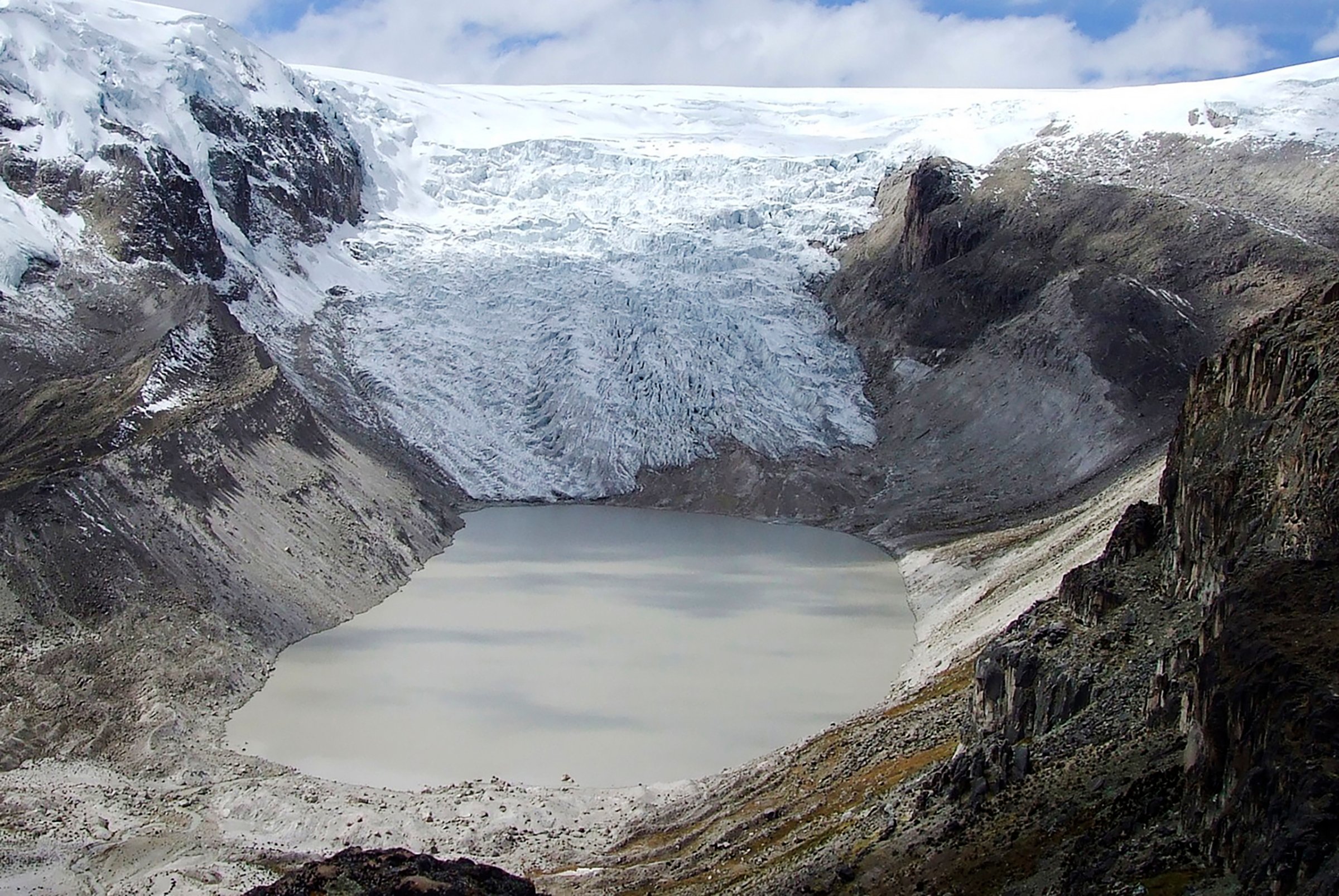
The discipline of science is one where the facts, once they are peer-reviewed and published in scientific journals, are fixed. They’re not open to interpretation, or at least not much. In that sense, it’s the opposite of politics, in which nearly everything can be negotiated. But as the first days of the Trump Administration have shown, many of those seemingly settled scientific facts–the ones that have informed countless policies from previous U.S. Administrations–are once more up for debate.
Within hours of President Trump’s Inauguration, the White House website was stripped of any mention of climate change or the effort to fight it. The Environmental Protection Agency (EPA) was ordered to temporarily freeze the grants it issues–a move by a new President that has happened before but one that some officials said went further than previous Administrations. Employees at the U.S. Department of Agriculture were forbidden to release any “public-facing documents,” according to a leaked internal email. And before taking office, Trump repeatedly cast doubt on the safety of vaccines.
Taken together, this is worrisome to scientists. Research undergirds many of the federal policies designed to keep safe U.S. citizens and the country they live in. The Centers for Disease Control and Prevention (CDC), for instance, issues national vaccine recommendations and plots how the U.S. responds to everything from the flu to Zika. The scientists at the EPA develop standards that aim to improve air quality and clean up potable water. And it’s the principles of science that inform investments at the National Institutes of Health (NIH), the single largest funder of health research in the world.
These agencies and others are responsible for policies that a growing chorus of scientists say are now under threat. “What binds together a lot of things we saw last week is a President basing statements and policies on beliefs rather than on evidence,” says Ken Kimmell, president of the advocacy group Union of Concerned Scientists. “Policies based on innuendo and hunches are doomed to fail.”
It’s not the first time an Administration has run afoul of science. President George W. Bush was criticized for not following science on a number of issues at the EPA. That ultimately led his EPA chief Christine Todd Whitman to resign, but she senses that the current tension between the scientific community and the incoming Administration is unprecedented. “There were some cases when people questioned scientists,” says Whitman. “But [what’s happening now] is very different.”
Early suspicion of Trump and his appointees has some scientists fearing that decades of policies grounded in science could be undone overnight. Nowhere is that concern more pressing than in the area of climate change, which Trump on Twitter called a “hoax” created by the Chinese. He later said he was kidding, but during the campaign he promised to pull out of the Paris Agreement, the most ambitious international effort in history to address climate change. Trump officials have also reportedly begun an internal debate about how best to unwind Barack Obama’s signature climate regulation, the Clean Power Plan. The policy requires every state to develop its own plan to reduce carbon emissions from power plants. The measure responds to a 2007 Supreme Court decision that the EPA must regulate carbon emissions if, in fact, they contribute to climate change–something that was confirmed two years later in a landmark study showing that greenhouse-gas emissions do indeed cause global warming and can damage human health.
Striking or even watering down the Clean Power Plan could have a devastating impact on U.S. efforts to fight man-made climate change. Environmentalists also worry that the government may go a step further and suggest greenhouse-gas emissions are not dangerous in the first place–something reportedly under consideration, according to industry insider publication E&E News. That would be a nuclear option, endangering future efforts by any Administration to address climate change. It would also be untrue.
“Whatever people want to believe, greenhouse-gas emissions endanger human health,” says John Holdren, a physicist who served as Obama’s chief science adviser. “It’s not a matter of belief. It’s a matter of science.”
Beyond climate change, scientists worry that Trump’s science policies could threaten public health. Doctors at the CDC develop a recommended vaccination schedule for American children, elders and the rest of us during flu season, and there’s no credible debate among scientists about vaccines’ safety and value. Still, when doubts emanate from as august a place as the Oval Office, the consequences can be dire. “The President’s willingness to reopen questions about the safety of vaccines can only serve to confuse people,” says Jason Schwartz, a professor at the Yale School of Public Health. “But it’s not an overstatement to say that lives depend on public confidence in vaccinations.”
If there’s room for hope among scientists, it may lie in one of the least appreciated power centers in Washington: the nonpartisan, permanent bureaucracy. Presidential appointees usually serve the length of an Administration. The employees who answer to them–including scientists who have been working in government for decades–are on no such timeline. “You can’t get anything done without the buy-in of the career workforce,” says Jonathan Levy, a former senior official at the Department of Energy. “If you treat them with respect and get their buy-in, you can get a lot done.”
The challenge is that once public trust in science is undercut–once it becomes politicized–the damage can be very hard to undo. “We are a society that has prospered on science and technology,” says Holdren. “If we start neglecting science and technology, we will suffer for it.”
More Must-Reads from TIME
- Inside Elon Musk’s War on Washington
- Meet the 2025 Women of the Year
- The Harsh Truth About Disability Inclusion
- Why Do More Young Adults Have Cancer?
- Colman Domingo Leads With Radical Love
- How to Get Better at Doing Things Alone
- Cecily Strong on Goober the Clown
- Column: The Rise of America’s Broligarchy
Write to Jeffrey Kluger at jeffrey.kluger@time.com and Justin Worland at justin.worland@time.com